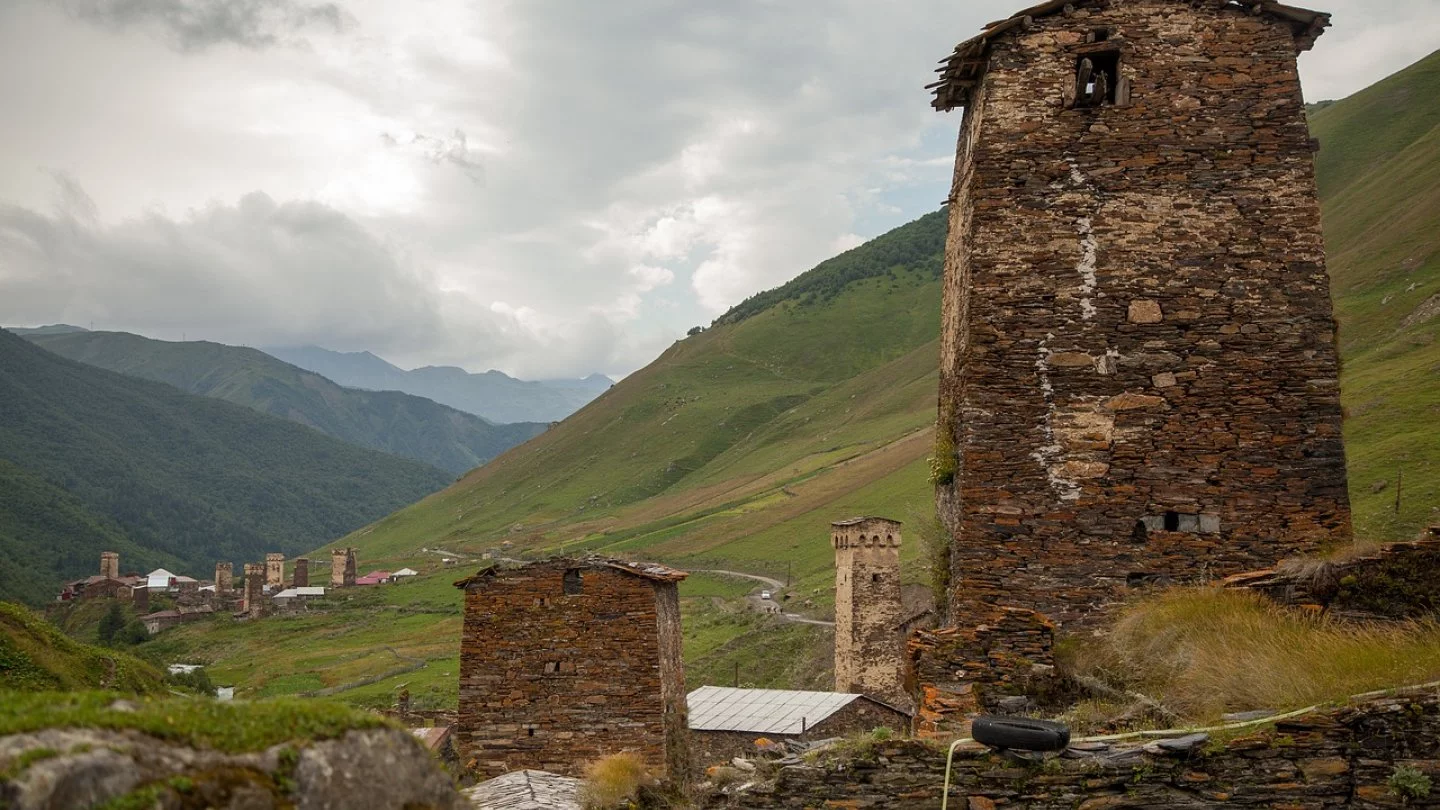News from The South Caucasus
 Pixabay.com
Pixabay.com
The South Caucasus has been anything but quiet this past week. Orda has put together a brief synopsis.
Armenia again voiced its frustration with the Collective Security Treaty Organization (CSTO) on 18 September 2024 at the Second World Armenian Forum. Armenian Prime Minister Nikol Pashinyan went as far as saying the organization "poses a threat to Armenia's security, future existence, sovereignty, and statehood."
There is a lot of discussion about whether Armenia is trying or thinking about returning to the CSTO. We (Armenia - Ed.) will fully restore our activities in the CSTO only if concrete answers are given to our raised questions. Two years have passed since our emphasis, the answers have not only not been heard, and it is already obvious that they will not be heard. Or, even if it is not obvious, I can say that as long as these answers are not heard and they are not convincing, every second Armenia is moving further and further away from the CSTO.
There is a phrase in aviation: ‘point of no return.’ If we have not already passed that point, there is a good chance that if this situation continues, we will pass that point of no return. Nobody will have any legitimate reason or occasion to accuse us of that, Pashinyan said.
Meanwhile, Kremlin spokesperson Dmitry Peskov responded by saying that Russia would continue contact with Armenia:
We continue and will continue contact with Armenia. Of course, it (Armenia - Ed.) is our close partner, he told journalists,
Almost a month before, Putin was on a state visit to Azerbaijan to discuss further cooperation and regulate the Armenian-Azerbaijan conflict, among other things. Not long after, Russian Foreign Minister Sergei Lavrov said that Armenia was sabotaging the agreement to open communications through the Zangezur Corridor.
Azerbaijan's president initially called its opening a condition for peace with Armenia, but talks on it were later sidelined. Lavrov later seemingly backtracked his initial statement, while Iran reiterated its opposition to the corridor and support for Armenia's border integrity.
On 12 September 2024, the Azerbaijani Defense Ministry made fresh claims that the Armenian Armed Forces reportedly opened fire toward Azerbaijani positions located in the border zone's southwestern area. Their Armenian counterparts quickly refuted this statement.
At the Second World Armenian Forum, Pashinyan also highlighted that Yerevan would "not pass up" the opportunity to become an EU member if an opportunity presented itself yet confirmed Armenia has no intentions to sever economic ties with Russia and the EAEU. Iran's opening of a trade center in Yerevan as a “gateway to the EAEU” solidifies this notion.
The Armenian National Security Service thwarting purported preparations to usurp power does catch one's attention, though. Unidentified Armenian citizens and former Nagorno-Karabakh residents allegedly traveled to Rostov-on-Don and underwent training to carry out the attempt. Criminal prosecution has been initiated against 7 persons: 3 arrested, 4 declared wanted.
A day prior, Georgia passed its controversial law curbing LGBT+ rights. Not long before that, Bidzina Ivanishvili, founder and Honorary Chair of the dominant party "Georgian Dream - Democratic Movement," sparked controversy. He said that the country's authorities would apologize to South Ossetia for the war in August 2008.
South Ossetian authorities responded, saying Ivanishvili's claim did not inspire confidence, whereas their Abkhazian counterparts expressed hope that the idea would be manifested as a legal document and for an agreement on the non-use of force to be reached with Abkhazia.
Ivanishvili's statements are indeed in stark contrast to Georgia's former position, considering Tbilisi's long-standing non-recognition of the breakaway territories. Georgia also once sought to hold Russia accountable for war crimes committed during and after the war, though Georgian authorities' recent rapprochement with Moscow is sending contrasting signals. They particularly stand out considering the EU's suspension of Georgia's accession.
Incidentally, Armenia and Georgia also struck an agreement to explore possibilities of expanding defense cooperation at the beginning of September. At the same time, Armenia's Secretary of Security Council, Armen Grigoryan, recently stated the country aims to secure a strategic goal of about 25-30% military-technical production on its territory.
Latest news
- FSB Employees Reportedly Detained in Police Operation at Sputnik Office in Baku
- Kazakhstan: Law Banning Face-Covering Clothing in Public Receives Presidential Signature
- President Signs Law on Territorial Defense
- Kazakhstan: AntiKor Offers Reward for Information on Fugitive Ex-Judge
- Almaty Region Official Accused of Land Fraud
- Former Justice Minister Beketayev Sentenced to Nine Years in Prison
- Kazakhstan Merges Anti-Corruption Agency into National Security Committee
- Kazakh Human Rights Activist Claims Surveillance in Montenegro, Investigation Underway
- Kazakh Prosecutors Send Perizat Kairat's Fraud Case to Court
- New Transport Minister Receives Instructions
- Russian Comedian Living in Kazakhstan Accused of Inciting Ethnic Hatred By Russian Authorities
- Digital Nomad Residency: One Applicant Shares Experiences of Bureaucracy and Technical Glitches
- Lavrov Asserts Kazakhstan and Russia In Contact Over Claimed UAV Flight Over Republic
- Health Ministry Not to Pursue Legal Action Over SAC Audit Report
- Week In Review: Arrests, Sentences, Appointments, and More...
- From Corruption to Classrooms: What Happened to Kairat Satybaldyuly’s Seized Assets
- Former KTZ Head Nurlan Sauranbayev Appointed Kazakhstan’s Minister of Transport
- Indian Developer to Invest $500M in Medical University and Hospital Projects in Kazakhstan
- Drought and Delays: Talgar District Farms Struggle Without Irrigation Water
- Verny Capital Sells RG Gold to China’s Zijin Mining Group

